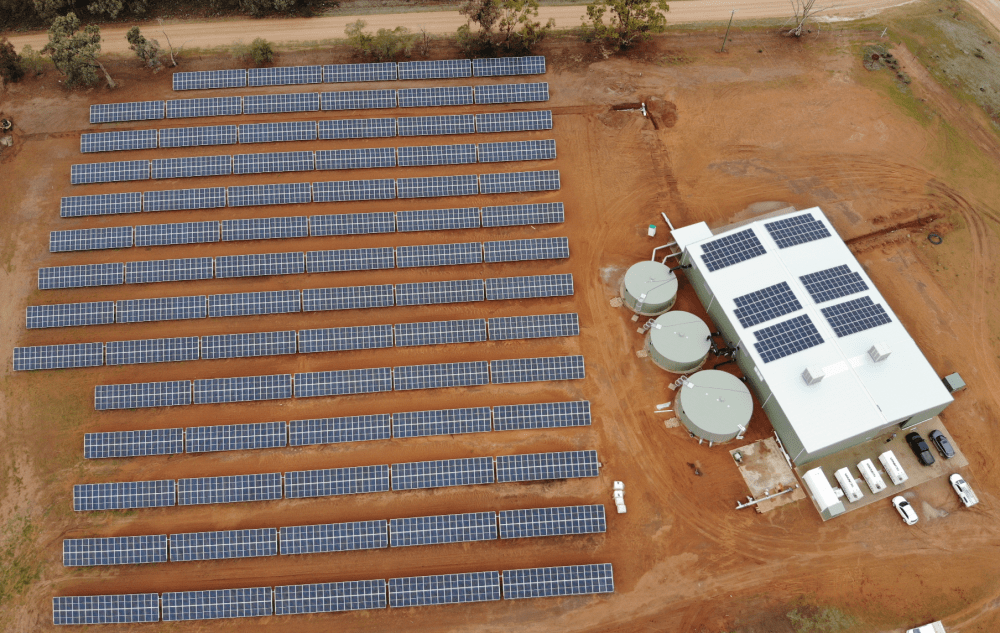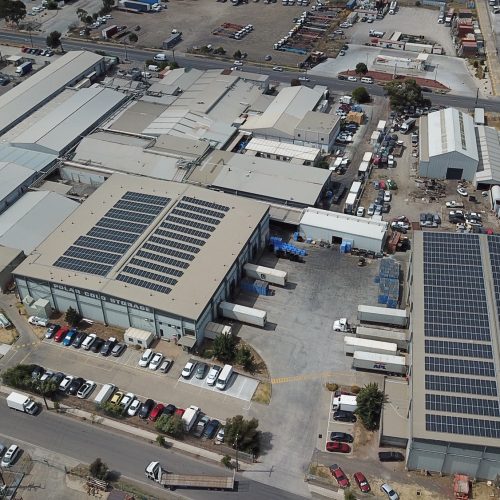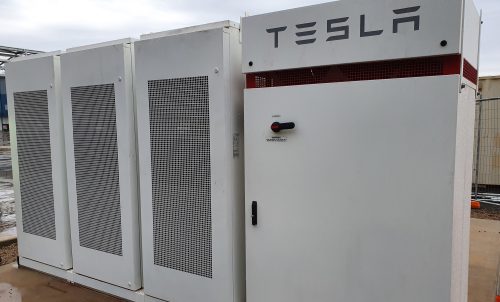Earlier this month, Acacia Energy attended the National Renewables in Agriculture Conference & Expo in Toowoomba, where we connected with farmers and agribusinesses to understand their energy challenges and motivations.
Here are five key reasons why farmers are turning to renewables, and how we helped one winery offset over $214,000 from their annual energy bill through a combination of energy technologies.
1.The biggest driver for renewables? Cutting electricity costs.
The annual cost of electricity to Australian farm businesses is estimated at $1.2 billion, and energy expenses can constitute between 12 and 20% of total operational costs. At the expo, most agribusinesses we spoke to expressed a strong desire to cut these costs to operate more competitively in both domestic and international markets.
One Victorian agribusiness, Andrew Peace Wines, took a proactive step by leveraging renewable energy to reduce their water supply costs for the vineyard. Historically, their water was pumped from the Murray River, but they shifted to an artesian source on their land, which required a reliable and renewable power supply for the new water treatment plant.
Acacia Energy designed and constructed 1.575MW of solar at both the winery and their pumping station. The solar systems generated over 2.5 GW hours of energy, delivering an annual value of $620,000.
Another agribusiness operator installed 1MW of ground mounted solar which contributed over $135,000 of solar power, up to 42% of their daily power requirements. As part of a holistic energy strategy, the company also installed biodiesel Gensets for standby power needs. Acacia Energy enhanced this approach by introducing our ‘Generation Services’ capability which created 25% in new revenue, offsetting an extra $79,000 in energy costs. In total, the business offset over $214,000 from their yearly energy bill.
Every dollar reduced off an energy bill through renewable technologies can be funnelled back into the business, reducing overheads, increasing profit margins, and helping the business stay competitive.
2. Renewables help to address increasing ESG pressures.
Sustainability reporting is becoming increasingly mandatory, with 96% of the world’s largest companies now disclosing their ESG practices, and nearly 60% of grape and wine businesses facing demands for sustainability compliance.
Large corporate chains are now working with their supply partners on improving sustainability to have a positive impact on their own mandatory reporting. We’ve heard from some agribusinesses that longstanding contracts with large corporates may be at risk for those unwilling or unable to improve the sustainability of their operations.
With the potential for huge savings from the first year of operation, renewables can often be an easy win for businesses who want to get ahead of the competition and safeguard their corporate supply contracts.
Andrew Peace Wines, for example, installed a 1.02 MWp solar system, reducing their annual greenhouse gas emissions by 1,230 metric tonnes of CO2—equivalent to powering 160 houses for a year. With a payback period of only 3.89 years, all savings generated after the payback period can be funnelled back into core business operations.
3. Renewables help manage seasonal energy costs.
Farmers at the expo discussed the burden of high electricity demand charges, and how seasonal energy demands (particularly during harvests) can drive operational costs to eye-watering heights.
In a winery business, for example, electricity demand charges during peak periods such as harvesting and processing can account for up to 42% of total electricity expenses.
By installing bio-fuel generators, businesses can mitigate these costs. Andrew Peace Wines, with our assistance, installed three 500kVA bio-diesel generators which switch on automatically when grid energy demand reaches a pre-defined limit.
These generators activate during peak periods, providing substantial savings year-round by switching from costly grid energy to self-generated renewable energy.
4. Renewables = energy security and self-sufficiency.
Energy security is crucial for agribusinesses, especially in the face of blackouts and brownouts. A statewide blackout in South Australia in 2016 cost businesses an estimated $360 million, with only 12% of the 200 businesses surveyed having a backup generator at the time.
At the expo, we discussed with business owners the importance of achieving energy self-sufficiency with a mix of solar, battery, and bio-fuel generators. Acacia Energy has installed bio-diesel generators for various agribusinesses to handle seasonal peak demand and participate in demand reduction programs. These generators ensure uninterrupted operations during power outages.

5. Not just savings: renewables can generate passive Income.
Renewable energy doesn’t just cut costs—it can also generate revenue. At the expo, we showcased how our grid-synchronised software tool helps businesses like wineries sell excess electricity back to the grid.
This tool activates generators when spot prices are high, turning idle resources into passive income. Furthermore, the installation of Solaredge Synergy Inverters and DC Optimisation ensuring optimal PV module performance, replacing grid energy and generating additional income.
At Andrew Peace Wines, for example, the biodiesel Gensets installed by Acacia Energy created $79,000 of new revenue for the business.
Renewables for Agribusiness
Our visit to the National Renewables in Agriculture Expo underscored the critical need for renewable energy in farming and agribusiness. If you’re looking to cut costs, generate income, and meet ESG requirements, contact Acacia Energy for a free energy assessment. Let us help you enhance your energy security, generate additional revenue, and achieve your sustainability goals. Reach out to us today and leverage greater returns from your existing solar PV or get started on your renewable energy journey.


